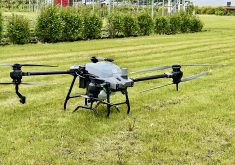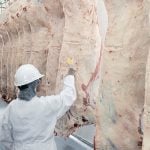In your next three issues of Country Guide, human resources writer Danielle Harder will bring you practical advice on how to tap the full benefits of mentoring for your farm
Think you don’t need it? You do if you’re a parent trying to cultivate good management habits in your children, and trying to decide at the same time if they’ve got the stuff to make a future farmer, says Harder. Or if you’re trying to diversify, or learn new business techniques. Or if you’re ready to retire but feel you have a lifetime of learning to contribute. The art and science of mentoring, says Harder, can have rewards for practically everyone.
Read Also

Producers aren’t panicking over tariffs and trade threats
The Manitoba Canola Growers Association (MCGA) surveyed its members this spring to get a sense of how trade uncertainty was…
It’s the stuff of business legend. In 1970, long before daredevil and entrepreneur Richard Branson became the world-famous head of the Virgin business empire, he
was a 20-year-old university drop-out with a big dream flogging discounted records out of the boot of his car in London.
Branson’s dream was to one day launch an airline, a business he knew nothing about. Realizing his need to learn more, his obvious choice might have been to hit the books. Insead, he approached another famous British businessman of the day, Sir Freddie Laker, who had pioneered the “no-frills” approach to business travel, inventing a model followed by companies like WestJet to this day.
Branson wasn’t looking for knowledge; he was looking for the insights that rise out of proven experience. And during this first meeting of what evolved into a long-standing mentorship, he hit the jackpot.
“You’ll never have the advertising power to outsell British Airways,” Laker said. “You’re going to have to get out there and use yourself. Make a fool of yourself. Otherwise you won’t survive.”
It’s advice Branson heeded, transforming himself into the self-promoter who makes a huge splash to promote each new business venture, which happens more often than anyone other than he and Laker could have imagined.
Today Branson doesn’t just run an airline, though Virgin Atlantic Airways and its affiliated national carriers worldwide are a certifiable aviation empire, he heads a multinational conglomerate with a net worth of more than $5 billion.
Without mentorship, Branson says, he could never have come as far or as fast as he did.
Businesses around the world have paid attention to this and other mentor miracles, including Canadian agri-business (see In Good Company, page 22).
On the farm, however, formal mentoring has been slow to take off.
Of course, every farm generation is mentored by its parents, and every farm employee is mentored too. Today, however, the dollars and the stakes that hinge on successful mentoring have multiplied out of all relationship with the science and attention paid to farm mentoring. Almost totally absent as well, is the idea that sometimes it’s the senior generation that needs to be mentored by the junior.
Instead, mentoring has been picked up mainly on agriculture’s edges.
Emma Holmes is an agro-ecology student at the University of British Columbia who is determined to farm one day, but who knows the long road to that farm will more than likely involve an















